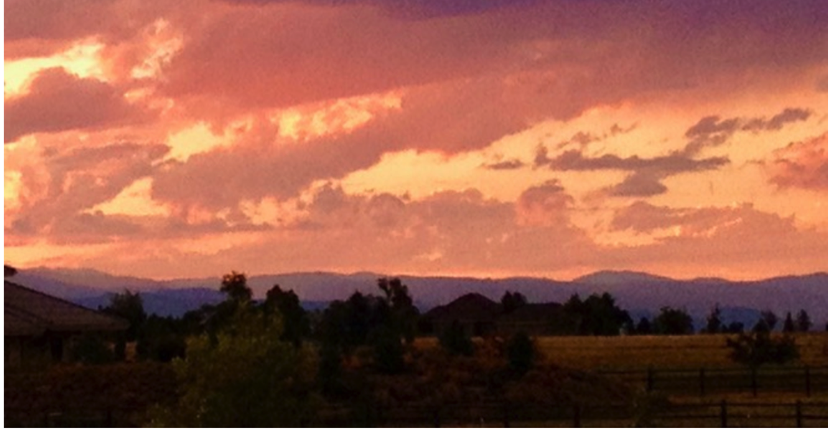Academic Connections, International
aconnectionsi@gmail.com © Academic Connections, International

Colorado Sundown
Photo Credit: JAC
If you take the view that God is the ultimate author of the book of Scripture and is also the ultimate author of the “book” of Nature,” their coherence seems plausible. The first assertion has been a long held orthodox view of Scripture and the second assertion as well because it coheres with the doctrine of Creation; then you’d expect, prima facie, those two ways of knowing should ultimately comport with each other.
Such a view of both books has been around a long time, but beginning especially with the beginnings and advancement of modern science in the 16th, 17th and 18th century, even until contemporary times there has been numerous issues where these two “books” seem to be in contradiction to each other...at least when one reads the first literally.
For example, there was the curious and embarrassing episode over this with Galileo’s inquisition and the subsequent house arrest that has been cited as the beginnings of a war between science and religion. While the Galileo situation has been grossly exaggerated, Galileo’s intransigence regarding a reading of scripture, an interpretation consistent with Aristotle’s cosmology that conflicted with his heliocentric views, and because he defied religious authorities (until he was forced to recant), his situation became a cause celebre for proponents of those who saw religion as a force that retarded intellectual advance. However,it is worth it to point out that this can be seen as a conflict between a scientific view and an interpretation of scripture and not scripture itself.
A take away from this episode might be that when scripture and science and conflict, it’s best to go with science in every case, but that might be too facile and one has to look at things case by case. The former position has been roughly the argument of the neo-orthodox and liberal wings of the Christian faith, but not of the orthodox view. The main difference between the two wings is that the neo orthodox has tended to hold the religious teachings of scripture to "still" be authoritative, whereas the theological liberal wing has not. They both agree that when science and scripture (appear to) conflict, you go with science.
In the case of the liberal view, there has been an historical tendency to find little difference between the naturalist reading of scripture and theirs; so in that light it seems a valid conclusion might be to save time and skip the slide into naturalism and simply immediately convert to metaphysical naturalism and drop the Christian label all together.
By contrast to those two views, the orthodox has been working on this apparent conflict between the book of nature and the book of scripture for a long time trying to find a view that does justice to both books without giving up the integrity of either. The resources in this section are designed to help you get a handle on these developments so you can have a more sophisticated appreciation of the problems and the attempts to resolve them in an orthodox manner.